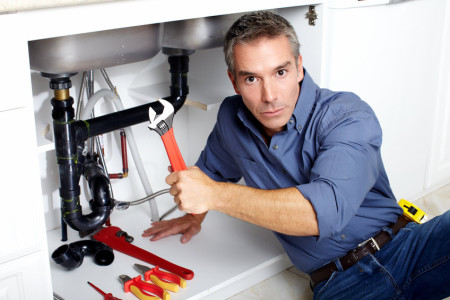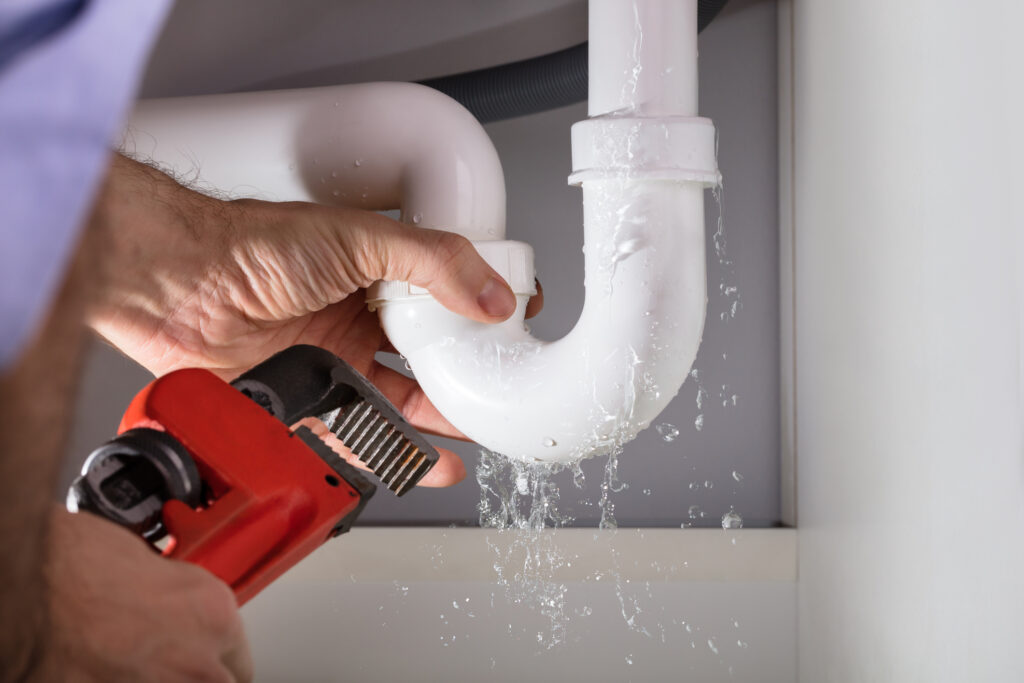The content which follows on the subject of Expert Tips for Emergency Plumbing Repairs is highly entertaining. Check it out yourself and decide what you think about it.

Pipes emergency situations can strike any time, creating anxiety and possible damages to your home. Whether it's a burst pipe, a blocked drain, or a leaky faucet, recognizing just how to take care of the circumstance up until an expert plumbing arrives can save you from more issues. This post offers vital emergency plumbing pointers to aid you alleviate damage and regain control throughout a pipes dilemma.
Shut off the Water Supply
The first step in any kind of pipes emergency is to shut off the water. For local issues, such as a dripping tap or bathroom, turn off the shutoff near the fixture. In the case of a significant leakage or burst pipeline, find your home's main water shut-off shutoff and transform it off right away. Knowing the area of these valves beforehand can conserve important time during an emergency situation.
Turn off Your Water Heater
In specific emergencies, such as a ruptured pipe, it's wise to turn off your water heater. This protects against overheating or damages to the system when water stops streaming. Turn off the power supply to the hot water heater (electric or gas) and allow it cool to stay clear of prospective threats.
Briefly Stop a Ruptured Pipe
A ruptured pipeline can result in substantial water damages in minutes. To minimize the problem:
Call an expert plumber right away to address the problem completely.
Have an Emergency Pipes Kit
Prepare a fundamental plumbing emergency situation kit to manage minor concerns efficiently. Your package ought to consist of:
Having these tools accessible can make a considerable distinction in your ability to handle emergencies.
Unclog Drains Securely.
A blocked drainpipe can be a frustrating and untidy issue. Right here's just how to tackle it:.
If these approaches don't work, prevent making use of too much force, as it may aggravate the clog.
Manage Overflowing Toilets.
An overflowing bathroom can trigger prompt disorder. Here's what you ought to do:.
Address Little Leaks with Short-term Repairs.
Little leaks can rapidly end up being considerable issues if left untreated. Utilize these momentary repairs up until expert assistance arrives:.
While these solutions aren't irreversible, they can assist lessen water loss and damage.
Handle Frozen Pipes Meticulously.
In cooler environments, frozen pipes are an usual emergency. If you suspect an icy pipe:.
Know When to Call an Expert.
While quick fixes can aid briefly, certain plumbing issues need immediate expert attention. Call a plumbing if:.
Without delay getting in touch with a specialist makes sure the issue is solved correctly and protects against further difficulties.
Avoid More Damages.
Taking fast activity to reduce damages can save you money and time in the long run. Below's exactly how:.
Verdict.
Plumbing emergencies can be frustrating, but with the best expertise and tools, you can handle the scenario effectively up until aid gets here. By turning off the water system, resolving small leaks, and making use of temporary fixes, you can lessen damages and maintain your home safe. Remember, these suggestions are momentary remedies; always speak with an accredited plumbing technician to take care of the root cause of the problem. Preparation and fast reasoning are your ideal allies in any plumbing emergency.
8 Helpful Tips for Managing Plumbing Emergencies at Home
If your plumbing system hasn’t failed once, wait for it because almost everyone has a story to tell. Sometimes, it could be simple emergencies such as a leaking pipe, a blocked cistern, or even a big burst pipe. In situations like this, you need to have some handy tips to save you some money and from possible damages.
Take care of minor issues early.
Sometimes, you could have avoided an emergency by taking proactive measures while it was still early. Some major plumbing emergencies can be a result of an ignored minor issue. We recommend that you have items like plumbing tapes and other related items. A plumbing tape can allow you to manage minor leaks before the plumber arrives.
Cut off the water supply.
This tip is essential in almost any type of leakage problem. For problems like minor leakages in the toilet or kitchen, turn off the supply that takes water to the affected pipes. If the leakage is a major pipe, you must shut off the supply valve to the entire building. This will help you avoid flooding your home and neighbors if you share a flat.
Know your plumbing system
Folks typically move into a new apartment without understanding the water supply around the building. This can prove disastrous if a water emergency arises and the plumber is far away. The previous tip will prove useless if you don’t practice this one. More importantly, know where your water shut-off valve is located – you’ll need that knowledge to prevent potential home floods.
Have some common handy tools
There are lots of plumbing emergencies that you can handle without hiring a plumber. That’s why you must keep some tools available always. Some tools that you can use to fix simple plumbing emergencies easily include plumbing tapes, screwdrivers, thread seal tapes, plungers, pliers, tape measures, and rubber gloves.
Insulate your pipes from cold
You’ll save yourself from many plumbing expenses if you protect your water pipes from the cold. This is because of the harmful effects that cold weather can have on your pipes. During winter, your pipes can burst from being overly expected to freezing temperatures. So, make sure insulators are there to keep the pipes working correctly.
Avoid practices that will clog your toilet.
Many people indulge in practices that can damage the plumbing system of the entire building. One of these is when they use their toilet to dispose-off garbage. They flush all kinds of things, such as paper towels, bandages, hairs, female sanitary products, etc., down the toilet. This will block your toilet in the long run, incurring unnecessary expenditures. Dump such waste in the trash instead.
Check your dials regularly.
Sometimes, there could be leakages in your home without noticing them in time. So, constantly monitor your water meter dial. If the dial is reading when there is nobody using water, this is an indicator that there is leaking. Check for leaks immediately. Call a plumber as soon as possible if you can’t find any.
https://www.constructionplacements.com/8-helpful-tips-for-managing-plumbing-emergencies-at-home/

Do you appreciate more info about ? Put feedback down below. We will be pleased to listen to your suggestions about this review. We are looking forward that you come back again before long. Remember to take the opportunity to promote this content if you enjoyed reading it. I enjoy your readership.
Get Quote Now